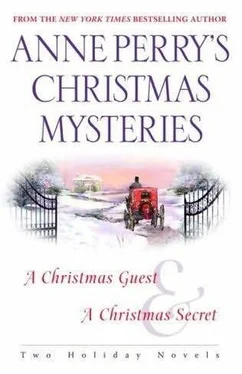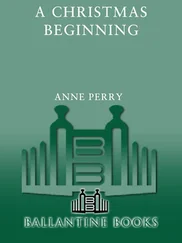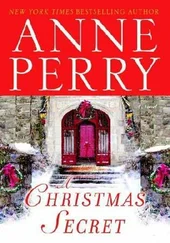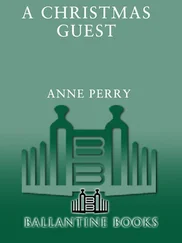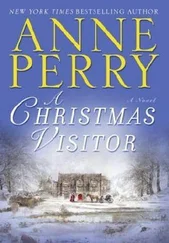His feet slipped a little on the ice as he trudged down the drive. Other than the thud of the mounded snow on the evergreens overbalancing onto the ground below, there was silence in the gathering gloom.
Beyond the trees the village lights shone yellow, making little golden smudges sparkling against the blue-gray of twilight. Someone opened a door onto a world of brilliance. A dog scampered out then back in again, and the light vanished.
Dominic’s hands and feet were numb. Hunching his shoulders from the cold, he stopped for a moment to retie his scarf.
That was when he heard the footsteps behind him. He swung around, his breath catching in his throat from the icy air in his lungs. The figure was there, crossing the village green only a few yards away. She was bent, shivering, and very small. She stopped also, motionless, as if uncertain whether to try running away.
But who could run in the deep snow? And like Dominic, she was probably too stiff with cold even to try.
Dominic took a step toward her. “Are you looking for me?” he asked gently.
“Oh…Reverend Corde…,” she began.
“Can I help you?” he asked gently.
“No! I was just…well…”
“Mrs. Towers?” He was almost certain it was the elderly woman he had met in about this same spot a few days ago. He recognized the small hands in their woolen mittens.
“Yes…er, yes. No, I am just on my way home.” She did not move.
“Perhaps I could walk with you?” he offered. “Just to make sure you get home safely. It’s a terribly cold evening.”
“Well…that’s very kind of you.” There was an eagerness in her slightly husky voice. He could barely see her face under the shadow of her hat and the scarf wound around her neck and shoulders, but he thought she might have been smiling.
He crossed the short distance between them and offered her his arm. She took it, pulling at him very slightly to direct him the right way. Walking at her pace was hard. There was no briskness to keep the blood flowing.
“Is there anything I can do for you, Mrs. Towers?” he asked, trying to guess why she had seemed to be following him. “Do you need some wood brought in? Or coal?” The moment he had said it he wondered if he had been clumsy. Possibly she had none, and that was the real issue.
“Oh, no thank you,” she said, shaking her head and shivering. “Really, I have everything. Very kind of you, but a hand not to slip is all I need.” As if to emphasize it she clung to him harder.
He walked in silence for several minutes, still believing that there was something she wanted to ask him if she could work up the courage. He ought to be able to guess it and help her if it was difficult. Surely a good minister would see needs, understand them before they were voiced?
Perhaps she was just lonely. Hardly anyone would say that. Please, Vicar, talk to me, and break the silence I live in. It doesn’t matter what I say or think, but please pretend for half an hour that it does. Listen to me, ask me; then when you go again I shall feel better.
Would she spend Christmas alone, too, apart from coming to church? He should ask her to tea. But he should invite her once before that, so the kindness wasn’t so obvious. No one wanted to be asked simply for charity’s sake.
“Mrs. Towers,” he began, “I hope that one day soon when the snow is a little less deep, you will come to tea with us. My wife and I would be delighted to better make your acquaintance. You could tell us much about the village, its history, and the people who have lived here. Would you?”
“Oh!” She sounded thoroughly startled. “Oh, well!” She gripped his arm as if she was in very real danger of falling. “That would be very nice, I’m sure. When the weather is better, I should be very pleased to come. When there isn’t so much snow, you know. Thank you so much. I am nearly home now. Just around the corner.” She pulled her arm away. “Do have a nice evening. Good night, Vicar. Thank you for your kindness. So nice to see you.” She doubled her speed and disappeared into the gloom, swallowed by the shadows of trees and garden hedges until she was indistinguishable from the other shapes in the night.
There was no point in standing here as if she might change her mind and come back. And yet Dominic had been certain that she had wished to say something more to him. Had he put her off by speaking? He had only asked her to tea at some time in the future.
Did she already know that the Reverend Wynter was dead, or did she perhaps fear it? Had he confided in her? Or perhaps living alone with little to do, and with no relatives nearby, she watched and listened in the village. It would not be snooping, just the instinct of a lonely person with time on her hands, but she might have seen or deduced all kinds of things for herself.
He should have asked her. Could she even be in danger herself?
He was freezing in the bone-deep cold. He was beginning to shake now that he had stopped moving. He turned and began to walk back across the snow toward the spires of the church, black against the first stars. He knew the vicarage lay to the right of it, invisible in the trees, its lights kept to a minimum for economy’s sake.
When he opened the front door, the warmth engulfed him, and after a moment he smelled the hot pastry, oil lamps, coal, and lavender furniture polish.
“Clarice!” he called out eagerly. “Clarice?”
She was there a moment later, hugging him. She gasped when the ice on his coat touched her neck and throat, then ignored it and held him tighter.
After supper they sat by the fire opposite each other. Outside, the wind rose, whipping the branches, and now and then clattering small twigs against the glass. He told her about speaking with Peter Connaught.
“Did he tell you anything useful?” she asked, leaning forward, eyes intent upon his.
“I don’t think so,” he admitted.
She caught his hesitation. “You think, you aren’t sure?”
He looked at her face with its large, tender eyes and vulnerable mouth. Had he brought her into the presence of murder again, into the violence and tragedy of human hatred? He remembered how much she had been hurt the last time, and how frightened he had been himself. She had never doubted him, no matter what the facts had appeared to be. He owed her honesty, but he also owed her protection. He did not wish her to be hurt, ever. And yet if he shut her out, he was alone. He could not tell her half-truths-not without destroying the thread between them that was so infinitely precious.
“It wasn’t what he said so much as a look in his face,” he said, feeling ridiculous.
“He believed you!” she said, understanding instantly. “You told him the Reverend Wynter was murdered, and he knew you were right!”
He felt a warmth inside deeper than anything the fire or the room could give him. “He believes someone has a secret, and that the Reverend Wynter could have learned it,” he said in confirmation. Should he tell her the rest: the impression only barely formed in his mind?
She was waiting for him to finish. She had something urgent to say also. He could see it in her eyes, in the clenching of her hands in her lap.
“I think he was almost relieved,” he said. “As if he had feared it, and now that it had happened it could be faced, and he was no longer alone.”
“He isn’t alone,” she said quickly. “And I told John and Genevieve Boscombe as well. I couldn’t help it. Dr. Fitzpatrick may be furious, but I couldn’t ask their help and then lie to them. They wouldn’t have helped me anyway, because I had no sensible explanation for what I’d done.”
He was confused, then touched by a tendril of fear, just a tiny thing, but unmistakable. “What have you done?”
Читать дальше
